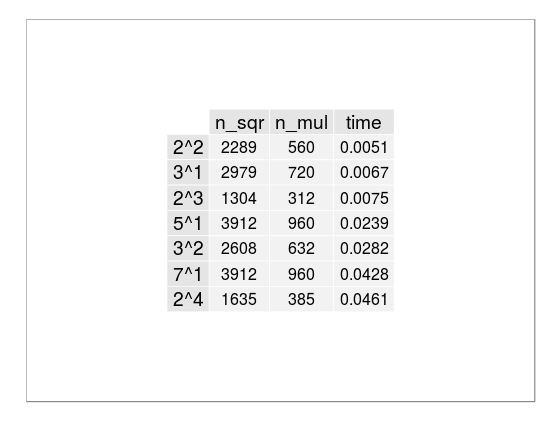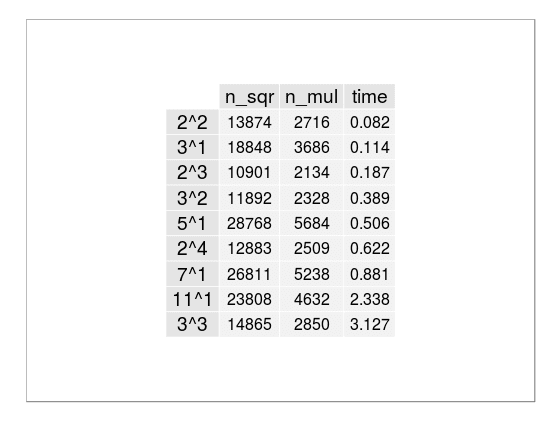This week I was working on the Jacobi sum test optimizations described in the last post.
First I add some fixed optimal $R$ values for $n$ with different number of digits. I also rewrite $s$ computation. This functions can be find here. It gave a good gain in speed, but I can add more intermediate $R$ values. It must be done carefully, because with smaller $R$ we can have worse $s$. This is shown in the graph, the PARI/GP implementation has many peaks.
 |
| mean time in seconds |
Also I do a lot of profiling using valgrind callgrind tool. I find that the computation of Jacobi sums takes a little time, so I'm not going to tabulate them.
I implement the final step of algorithm on condition that $s^3 > n$ using divisors in residue classes algorithm. After that all becomes slower. The divisors in residue classes algorithm have a good complexity $O((\ln n)^3$, but we need to call it thousands of times ($R = 2520$ for 100 digits $n$).
The next graph show timings for $n$ from 50 to 100 digits:
 |
| mean time in seconds |
To better understand how selection of $R$ affects at the time I look at most slow part of algorithm ($n$-th powering in $\mathbb{Z}[\zeta_r] / (n)$) and count the number of operations. This can be seen in the following tables for 100 and 300 digits numbers:
 |
 |
Also attach link to valgrind outputs for 100 and 300 digits prime.
Next I want try to use directly fmpz_vec operations, without fmpz_mod_poly abstraction. After this I want to implement some formulas described in "Implementation of a New Primality Test" for fixed $r = p^k$.
No comments:
Post a Comment